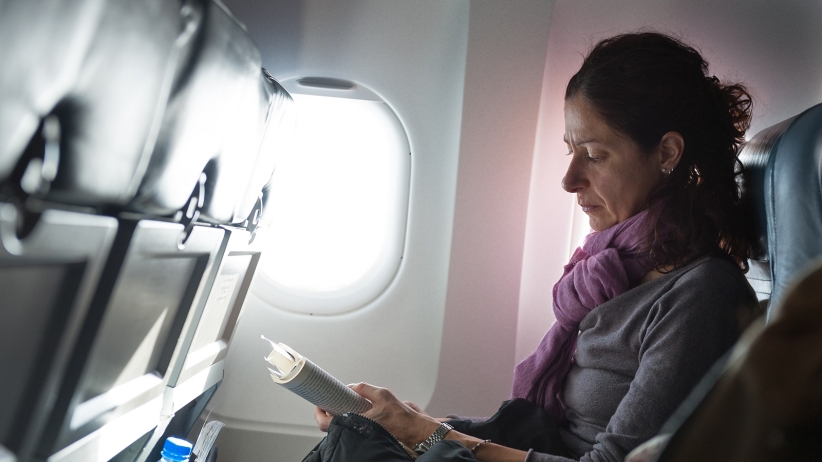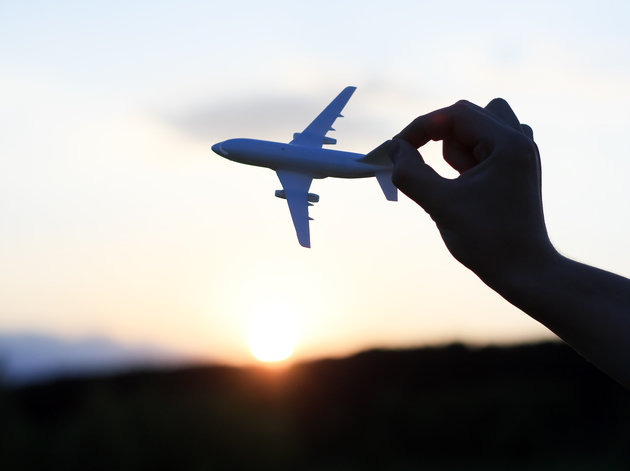Vacation season is upon us (we see you, warm weather) but for some people, jet-setting off to a relaxing destination can be anything but.
While data on the subject is sparse at best, some research suggests that an estimated 40 percent of people experience some level of anxiety when they fly, The New York Times reported. For those with a severe phobia of plane travel, the issue can result in panic attacks or make individuals physically sick. It’s also coupled with crippling thoughts.
“Anxiety when flying can be dissociating,” Nathan Feiles, a licensed psychotherapist who specializes in fear of flying, told The Huffington Post. “There is this sense of losing control. People can feel at their most vulnerable when they’re in an airplane.”
While clinical phobias like a fear of traveling require effective treatment and care through a mental health professional, Feiles says there are ways to manage or ease your worries when you’re in the air or on the move. Below are a few expert-backed tips on how to abate your anxiety:
1. Work to normalize the event.
Your brain prompts anxiety by responding to perceived “threats,” Feiles explained. That may include activities you don’t do on a regular basis.
Think of it this way: Many of your daily behaviors hardly produce a panicked response because you engage in them frequently. The key is to normalize travel just as you would your regular activities.
“It’s all about getting your brain to understand that flying is normal and routine,” Feiles said. “There are things you do every day that contain risk — even showering — but you still do it because it’s a habit and there’s a very minimal risk. The same goes for this.”
To normalize air travel, Feiles recommends exposing it to yourself as much as possible and in small ways. Track a flight for a few days or a few weeks. You’ll soon notice that it comes and goes with success each time.
2. Focus on your breathing.
Don’t underestimate the power of the inhale. If you’re feeling fearful in the air, Feiles suggests trying some meditation or breathing exercises to calm your panic.
“The best thing for someone to do when they’re feeling panic in the air is to get themselves into a more relaxed place physiologically,” Feiles said. “Extend your breath by inhaling and exhaling longer than normal or think of pleasant images.”
3. Educate yourself.
As they say, knowledge is power. It may help your anxiety by studying up on flying, airplanes and flight patterns. This will also help contribute to the normalization of air travel, Feiles said.
“People perceive threats due to an active imagination,” he explained. “But for example, learning about modern airplanes and how they’re built and that, say, the wing won’t break off, may help ease those fears over a period of time. If people have imaginative fears, it helps to have actual knowledge.”
4. Acknowledge your panic.
One of the worst things you can do is avoid your fear. The sooner you accept that your panic is occurring, the sooner you can combat it.
“Trying to run from your emotions only makes it worse,” Feiles said. “Acknowledge on a real level what you’re feeling and note that it’s not easy but you will get through it. That can help dissolve some of the pressure.”



